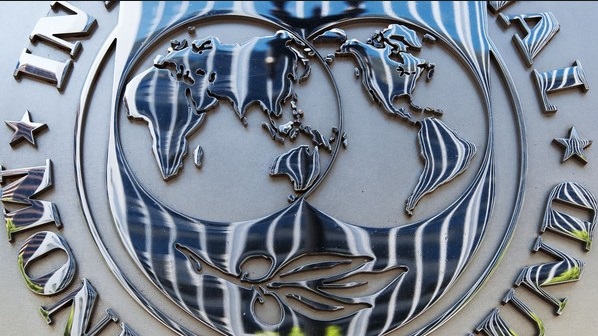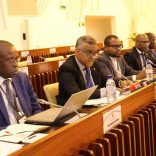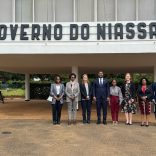Mozambique: Development Strategy does not present ambitious vision – FMO
Still a few macro shocks in sight for Mozambique

IMF insists on knowing the whole truth about the "Tuna Bonds" in order to move forward and restore normal relations and assistance with Mozambique.
It is relatively rare to hear a Mozambican official publicly adopting what seems to be a clearly liberal stance in terms of political economy. That is what Waldemar F. de Sousa, administrator at the Bank of Mozambique (central bank), did earlier today at the Radison Hotel in Maputo, during the presentation of the International Monetary Fund (IMF)’s sub-Saharan economic outlook for 2017.
The event focused on recent development about the continent’s economy and its mid and long term potential, after a period of significant slowdown following the collapse in the prices of commodities. The IMF praised the Government’s effort to manage the country’s debt, its external liability being expected to reach about 85% of gross domestic product (GDP) this year, more than the double than the level seen in 2015.
But it also stressed on the necessity to remove state’s subsidies, such as those granted to the public transport industry to manage the fuel price increase. “The adjustment is necessary, but we do not know, ex ante, what the shock will be for the real economy”, insisted Ari Aisen.
The senior economist added that the Mozambican government should also be wary of shifting to internal or domestic sources of finance (namely through the issuance of sovereign debt or other binding debt instrument) to fill the funding gap, as access to capital markets is virtually closed for Mozambique. “Resorting to domestic debt will only accentuate the pressure on the banking sector, which is already heavily exposed to Mozambique’s unsustainable deficits”, explains Ari Aisen.
For its part, commenting and approving the intervention of the IMF’s expert, Waldemar de Sousa nevertheless called for a modern educational and training program for the youth of this country as the ultimate engine of long-term growth.
“We must put a stop of the mass migration of young people from rural areas to urban environment where they hardly have any chance to find a job because of a patent lack of skills”, underscored the central bank’s expert.
He clearly made the audience understand that mega resource-based projects will never produce its desirable effects on the Mozambican people, unless these become productive enough to attract the most competitive employers, locally or from foreign origin. Yet, higher levels of productivity will be reached thanks to the acquisition of quality skills by Mozambicans.
Another crucial point, which reflects a liberal (and desirable) approach to development, refers to the trade barriers. From Waldemar de Sousa’s perspective, tax constitutes a critical to growth and to investment from the private sector.
“I recently met with various representatives of the private sector, who, in a very insisting manner, showed how these prohibitive taxes prevented Mozambican ports and other logistical infrastructures to compete with other infrastructures from neighbouring countries”, reminded the Bank of Mozambique’s administrator.
Finally, the presentation has underlined a crucial lesson that African countries, including Mozambique, must learn from the current crisis. That is, not to be over-cyclical in its monetary policies. Before the arrival of the new central bank’s governor, Rogerio Zandamela, a senior IMF’s official appointed in August last year, the monetary institution had adopted a dangerously relaxed stance on credit. To the point of resulting in a credit bubble, like in almost all African countries tempted by the seductions of easy money.
From now on, such practices seem to be over, which will greatly contribute to the financial stability of Mozambique and, in turn, to its future credibility, especially vis-à-vis international investors. But this has its price too.
A prudent central bank who will not hesitate to impose restrictive monetary conditions during boom cycles combined with the correspondingly more cautious commercial banks it regulates may result in lower growth rates. But, at least, such pattern of growth will eventually more sustainable and of a higher quality.
Last but not least, it was impossible for the IMF not to raise the issue surrounding the Kroll audit about the undisclosed debt related to loans granted to Ematum, Proindicus and Mozambique Asset Management, and which ultimately triggered the financial crisis.
Without elaborating on this part, though, Ari Aisen clearly explained that the restructuring of the USD 2 billion debt and the resumption of the IMF’s assistance will directly depend upon the disclosure of the truth. “We must know what happened, who was involved in order to go forward”, firmly explained the IMF’s representative in Mozambique.
For its part, Waldemar de Sousa said that we owe such “truth” to the people of this country, “who must absolutely have a clear picture of what happened so they may know what sacrifices we should all make and for what purposes”.
By Levy Sergio Mutemba













Leave a Reply
Be the First to Comment!
You must be logged in to post a comment.
You must be logged in to post a comment.